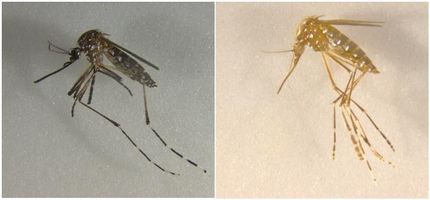CRISPR-Cas9 corrects sickle cell mutation
Collaborative effort to reduce off-target CRISPR-Cas9 genome editing
Advertisement
Genome editing using the CRISPR-Cas9 system has tremendous promise for therapeutic correction of genetic errors in human cells. Prior to adoption as a medical therapeutic, safety concerns relating to off-target effects must be minimized to mitigate risks that may arise from the unintended action of this system at sites similar, but not identical, to the desired gene target site. In a study researchers at Integrated DNA Technologies (IDT) and the laboratory of Prof. Matthew Porteus at Stanford University describe a novel Cas9 mutant that shows improved specificity and maintains high activity when used in the medically relevant ribonucleoprotein (RNP) format. Potential for medical use of the new mutant enzyme was demonstrated in human hematopoietic stem and progenitor cells (HSPCs), where it was able to correct the mutation in the beta-hemoglobin gene responsible for sickle cell disease (SCD).
Several groups previously described Cas9 mutants with improved specificity; however, all show significantly reduced activity when used in the clinically relevant RNP format. These previous mutants were developed using intelligent design based on known protein crystal structures. Instead, IDT scientists used an unbiased method to screen approximately 250,000 random Cas9 mutants to identify those rare mutants that improved specificity without compromising activity. After several rounds of selection, a single mutant emerged, now known as Alt-R HiFi Cas9 nuclease, that provides the desired high on-target, low off-target characteristics. In the published study, a collaborative team from IDT and Stanford demonstrates the robust on-target editing and minimal off-target cleavage achieved by HiFi Cas9 in several therapeutically relevant loci in hard-to-edit HSPCs. They also show HiFi Cas9-mediated correction of the sickle cell disease-causing p.E6V mutation in patient-derived HSPCs.
Mark Behlke, MD, PhD, chief scientific officer at IDT and a co-author of the study, said, “Previous attempts at improving Cas9 specificity characterized the mutants using plasmid-based methods that result in sustained overexpression of the Cas9 protein, which increases off-target activity and is not ideal for medical applications. This sustained overexpression, however, rescued function of the mutants that otherwise showed low activity when used in the more transient RNP format. We specifically performed a broad screen to identify a mutant that performs well when used at the lower protein levels achieved with RNP delivery, maximizing safety and further reducing unwanted side effects. Prof. Porteus demonstrated utility using the new system to correct the SCD mutation in normal human blood-forming stem cells while minimizing known off-target activity. We anticipate significant interest in use of the new Cas9 mutant in translational medical applications.”























































